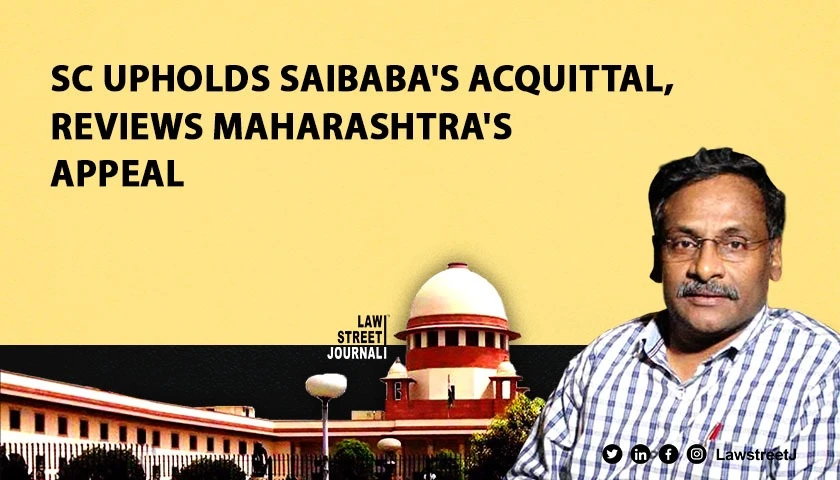NEW DELHI: The Supreme Court on Monday declined to stay the Bombay High Court's order acquitting former Delhi University professor G N Saibaba in a Maoists link case.
The court, however, decided to examine the Maharashtra government's plea.
A bench of Justices B R Gavai and Sandeep Mehta said, "How many years were spent in jail by the man? There can't be any urgency to reverse order of acquittals...Prima facie, the judgment (of the HC) is very well reasoned".
The bench also said even though Additional Solicitor General S V Raju did not press for stay of the High Court order but since the plea mentioned it, the court is rejecting such a prayer.
Raju said he would seek to put some documents on record.
Also Read - Bombay High Court acquits G.N. Saibaba and others in UAPA Case
The bench said it would grant leave in the matter and the state government may file an application for early hearing.
On March 5, the Nagpur bench of the Bombay High Court had acquitted wheelchair-bound former Delhi University professor Saibaba, who was arrested more than a decade ago for alleged links with Maoists.
The HC had set aside the life sentence awarded to Saibaba, and held the sanction for prosecution under the stringent Unlawful Activities (Prevention) Act (UAPA) null and void.
Five others, Mahesh Kariman Tirki, Pandu Pora Narote, both farmers, Hem Keshavdatta Mishra, a student and Prashant Rahi Sanglikar, a journalist were accused in the case and sentenced to life imprisonment, while Vijay Tirki, a labourer, was sentenced to 10 years in jail. The division bench also acquitted the five in the case.
On March 5 itself, the Maharashtra government approached the Supreme Court challenging the Bombay High Court verdict in the case in which Saibaba was accused of having links with the banned CPI (Maoist).
On October 14, 2022, another bench of the high court had acquitted Saibaba, noting the trial proceedings were "null and void" in the absence of a valid sanction under the UAPA.
The Maharashtra government had on then approached the Supreme Court challenging the decision. The apex court initially stayed the order and later in April 2023, set aside the high court order and directed it to hear the appeal filed by Saibaba afresh.

















